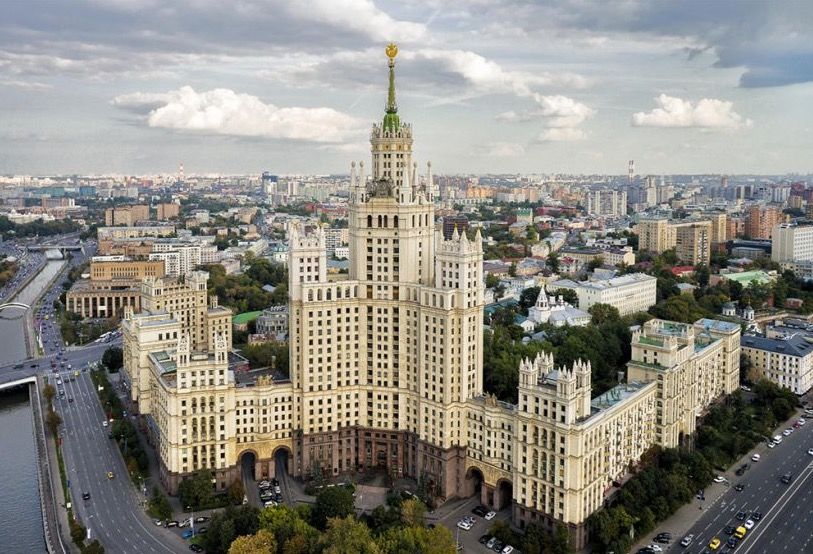LIVE UPDATES: After an expose by anti-corruption activist Alexey Navalny, the property manager of Igor Shuvalov, Russia’s first deputy prime minister, has explained that he is handling Shuvalov’s apartments essentially in a blind trust.
Welcome to our column, Russia Update, where we will be closely following day-to-day developments in Russia, including the Russian government’s foreign and domestic policies.
The previous issue is here.
Recent Analysis and Translations:
– NATO Got Nothing From Conceding To Russia In the Past, Why Should It Cave To The Kremlin Now?
– Who is Hacking the Russian Opposition and State Media Officials — and How?
– Does it Matter if the Russian Opposition Stays United?
UPDATES BELOW

Putin was last seen in public on July 1 on a trip to Finland, where he warned Finnish leaders not to join NATO.
This week, kremlin.ru has posted reports of meetings with governors, but the last time Putin “went missing” in 2015, it was discovered that previously-recorded video tapes of such meetings were used, and now it is not certain they were made live.
For example, today a news brief about a meeting with Sergei Menyaylo, governor of Russian-occupied Sevastopol appeared at 14:10, but a Oleg Nikolayev, who is running for a seat in the State Duma from the Party of Growth, told RBC that he had been on the same flight as Menyaylo, but it had departed from Moscow for Sevastopol at 6:45 am today.
“The international agenda has now come to the foreground. The aligning of relations with Turkey is underway and the discussion of the situation in Abkhazia, where the climate has worsened. In that connection, additional meetings and events are being held including with the participation of the Security Council. There may be personnel changes. The president wants to concentrate and not be distracted, the regional trips have been moved to August and September closer to the elections.”
Leonid Dzapshba, the Russian-backed self-styled interior minister was dismissed by President Raul Khajimba and the protesters’ other demands were being negotiated.
Another odd thing that happened this week is that Putin signed a law on the National Guard whose text differed from the law passed by the State Duma. Kremlin officials were investigating how the discrepancy occurred.
— Catherine A. Fitzpatrick

“The idea was to create a unique property. And how we should proceed further was a secondary issue. If a quality buyer appeared, it would have to be sold. Obviously, in the event the apartments were put together, the property would be sold at a significant premium. It’s an investment, after all.”
Kotlyarenko said the “American construction” of the “blind trust” was not usually done in Russia in this fashion. He said Russian law did require him to send reports to his client “that no one read.”
He insisted that Shuvalov did not follow his investments and that there was no conflict of interest. He said he had working capital of 30 billion rubles ($464 million), but not all of this came from Shuvalov and his family. He wrote off Navalny’s concerns as “personal enmity and envy.”
On July 4, anti-corruption campaigner Alexey Navalny published a blog post accusing Shuvalov of hiding his ownership of prestigious apartments on Kotelnicheskaya Street in one of the famous Stalin towers.
RBC investigated Navalny’s findings further, and a source within the property registry agency told them that Kotlyarenko owns 11 apartments in the Stalin building, all next to each other. A spokesman from Shuvalov’s office said that his properties and those of his family were being managed and were properly declared.
The principle of the “blind trust” is that Shuvalov is not supposed to be following the investments. But TV Rain interviewed a tenant in the building who said he had seen Shuvalov come there many times.
Navalny writes that Shuvalov’s lavish acquisitions were especially galling after the rest of the country was supposed to put on their St. George ribbons and “gather around the leader, the party, and the government” after the annexation of Crimea, but tighten their belts in an economic crisis and accept losses of savings, wages and pensions.
Meanwhile, government leaders are able to “catch golden fish in these muddy waters,” says Navalny. Shuvalov already has a mansion and dozens of servants, as Navalny has reported in the past; last year, Navalny exposed Shuvalov’s hidden ownership of a London apartment.
Translation: And do you know which building in Moscow wangled 3 billion rubles (!!!) for capital repairs? The very one where Shavalov began buying up the apartments.
— Catherine A. Fitzpatrick
